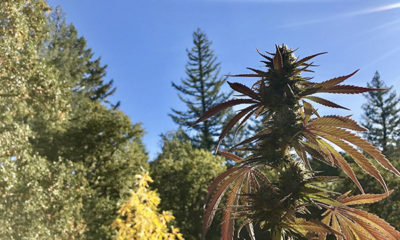
Joint Opinions
Religion Could Slow or Stop Medical Marijuana in Oklahoma
Oklahoma voted to become the 30th state to legalize medical marijuana, but religious conservatives, in and out of government, may continue to slow the process.
The problem with democracy in America is that we don’t really have one.
We live in a republic, where we elect lawmakers to do the dirty and annoying work of shaping policies (and our society) for us. And, as the situations in the many states where voters have elected to legalize marijuana in some form or another, this is a problem for drug-policy reform — and can remain one, years after marijuana is legalized.
In Oklahoma this week, 56 percent of voters approved a ballot measure legalizing medical marijuana. It was a long time coming — the detailed language voters finally signed off on was first submitted in 2016 — and it survived numerous bad-faith, top-down efforts to scotch it.
Gamesmanship from former state Attorney General Scott Pruitt, now Donald Trump’s EPA Administrator, that would have rewritten the title in a misleading fashion backfired. And appeals from religious leaders and religious conservatives, who claimed that backers of legal cannabis were attempting to weaken the influence of the church and erode the power of God — no small deal in a Bible-friendly state like Oklahoma— also failed to sway voters.
That’s good! But the problem is that religious die-hards can now lean on lawmakers to slow down progress — and that is an area where their power may be magnified.
As CBS reported, now that voters have declared they want legal cannabis, it’s incumbent upon the legislature to make it happen.
Lawmakers will now have to come together to advance the law, CBS Oklahoma City affiliate KWTV reports.
Oklahoma House Majority Leader Jon Echols doesn’t anticipate the law’s implementation taking the state as long as some other pioneer state such as Colorado.
“The citizens of the state have decided that they are in support of this law, so there aren’t necessarily any changes that need to be made,” he said. “What I would like to see happen is putting together an orderly process for getting your permits to sell it to be a dispensary. Getting your permits to grow it. … We put together some common sense regulations for what home growth looks like. We’re not looking at changing any of the fundamentals.”
The phrase is so well-worn as to be threadbare, but details matter, and they can bedevil intentions. Other states are full of examples of state legislators, the democratically elected representatives responsible for implementing our republic, finding ways to delay, deny, or otherwise make things difficult for voter-approved weed.
In Florida, where voters legalized medical marijuana, users have had to resort to the courts for full implementation lawmakers denied them. Similar scenes have played out in Massachusetts, where voter-approved retail recreational marijuana outlets are finally coming online, almost two years after their approval, and in Vermont, where lawmakers have legalized the possession and use of cannabis, but not anywhere to buy it.
This brings us back to religion. In Utah, the Mormon church, which enjoys outsized power in the heavily Mormon state, has been doing everything it can to prevent voters from even considering medical cannabis. That effort has failed so far — but the church enjoys outsized power in the state Legislature, where serious regulatory damage can be done to cannabis access, should lawmakers so choose.
And in the Great Plains states, lawmakers have proven susceptible to faith-based arguments for policy. Recently, legislators in both Oklahoma and Kansas voted to allow adoption agencies to make decisions based on faith.
Weed-fearing lawmakers or ambitious politicians eager to endear themselves with a weed-fearing constituency don’t need religious reasons to do this, but in Oklahoma, they have many to choose from.
TELL US, what are some of the specifics of medical marijuana laws in your state?
























